(lubavitch.com) After much intense debate, the Jewish community of the Shoreline won approval Wednesday night by the local Planning and Zoning Commission for plans to build a new Chabad center in Guilford.
The win clears a major hurdle in the process, allowing Rabbi Yosef and Rochel Baila Yaffe to move ahead with their vision for a comprehensive Chabad center serving the New England coastal area.
Opponents of the building are appealing the case, but says Rabbi Yaffe, “we are confident that we will prevail in court. The facts speak for themselves, and the concerns and fears raised by the neighbor who opposed this, are greatly exaggerated.”
Marjorie Shansky, legal counsel to Chabad, agrees. "The complaints stem from only a vociferous few. We've made every effort to respond to the ad hominem attacks of the opposition with expert testimony on the effect Chabad's presence will have on the neighborhood; the appropriateness of the proposed use in the proposed location under the Guilford Regulations has been the foundation of our argument from beginning to end."
The Yaffes have been reaching out to the area’s 2000 Jewish families since their arrival to Branford back in 1999. The steady growth and interest in Chabad’s educational, religious and social activities soon prompted the search for a facility that would be more adequate than the storefront it was using.
In 2006, Chabad purchased land in the more centrally located town of Guilford. At the time the property was home to a three-family ranch, and plans were drawn to take advantage of the terrain, building the center into the hill of the property’s sloping lawn. The parcel of land, located off the Interstate 95, was zoned as residential, and lies north of a commercial zone and directly adjacent to the largest industrial zone in Guilford. As required by law in Guilford, Chabad filed for a special zoning permit required for all religious facilities. The permit is granted by the Planning and Zoning Commisison after evaluating the needs of the site and its effect on the neighborhood.
Plans to move along, however, were stalled when a neighbor, Donna Criscenzo, objected to the building. Despite running a medical practice from her own home, Criscenzo claimed that the Chabad structure would threaten the area’s property values and increase traffic. But advocates of the plan, including expert testimony from sanitation officials, a real estate appraiser, traffic engineer and an engineering firm, have shown that Chabad's presence does not pose a burden on the neighborhood.
"If anything," says Shansky, "the Synagogue would make the ideal buffer by transitioning between the residential and commercial zones."
Still, Chabad made revisions to the plans in an unsuccessful effort to accommodate the concerns raised. Ms. Criscenzo persisted to rally opposition to the plans.
After nearly 22 hours of public hearings and deliberations, the zoning commission's ruling brought a sense of vindication to members of the community. To eight-year-old Jared Zeitlin of Guilford, the ruling promises him a chance to finally attend a Jewish school in his hometown. "When we moved here from New York," his mother Alyson says, "I immediately began to look for opportunities to provide my children with a Jewish education."
With no Jewish school in Guilford, her search brought her to the Yaffes in nearby Branford. Her son and ten-year old daughter currently attend Chabad's weekly Sunday Hebrew school. Though she attended the various hearings herself, when Jared heard that the final decision would be made on Wednesday night, "he was adamant about staying through the entire deliberation process." Only upon hearing the Commissioners themselves announce their final decision at 11:30 that night did he agree to go home.
In granting their approval, the board cited the cultural benefit and diversity that the Chabad center would bring to the community. It restricted maximum occupancy of the center to 150 people during regular services, with an additional 50 allowed for holiday service and special programs.
Guilford is not unique in its struggle with difficult zoning issues. In recent years other cases have arisen in the state of Connecticut, including conflict over another Chabad synagogue in Litchfield, a Cambodian Buddhist Temple in Newtown, and a mosque in the nearby Wallingford.
"Unfortunately local land use agencies here have been moving in the wrong direction for religious organizations," says Shansky, who calls the experience of dealing with the opposition over the last sixth months the most painful of her career. "There is hope, however, that the current decision will lead towards a precedent of positive rulings."
The Yaffes are unwavering in their determination to turn their vision into a reality, and are gratified, they say, for the support of so many in the Jewish community and beyond. A particular surprise came last September, when a local man, identifying himself as Chip Viel, knocked on the door of Rabbi Yaffe's office, wanting to return a “lost” item to the couple.
A relic hunter by hobby, Veil combs demolition sites with a metal detector for arrowheads. When an old farmhouse was dismantled years ago to make room for the industrial park opposite the planned site of the synagogue, Chip was given permission to search the grounds.
Handing the rabbi a coin, Chip said, "I found this buried beneath the surface and I’ve held onto it for these years. Now, however, I think it belongs to you.”
The 100-year old coin bears the faces of an elderly Jewish woman and man with the inscription,
“Help us and G-d will help you”. On the other is a building surrounded by the words, “Help us build a home for the sons and daughters of Israel—The great drive for a home for the aged, 232 E. 10th Street.”
The coin was apparently issued as part of a fundraising campaign that began 1909 and ended in 1911, for a Jewish home for the aged in New York City. Veil later sent an email to Yaffe saying that the coin proves that even a century ago, Guilford was no stranger to Jewish life and culture.
According to Rabbi Yaffe, one of the opponents of the Chabad center complained at the hearing that the new center “will not be regular synagogue. It will be beacon on the hill.”
“I couldn’t have said it better myself,” chuckles Yaffe. “The Chabad center will indeed benefit the entire community, and enhance the quality of life for everyone here.”


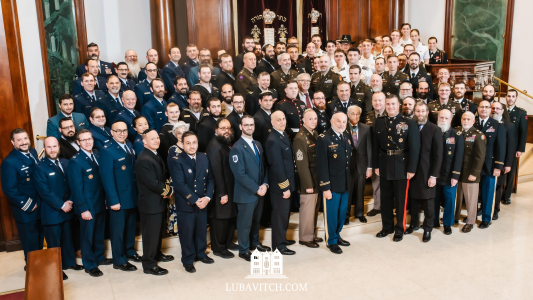
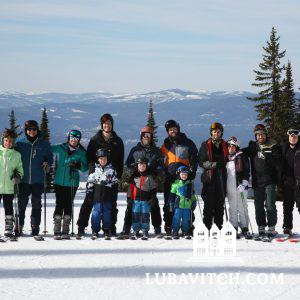
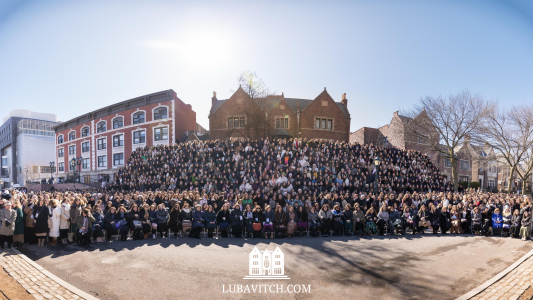
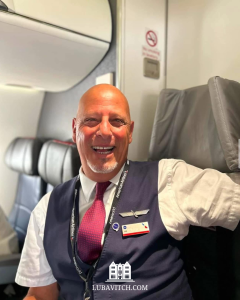
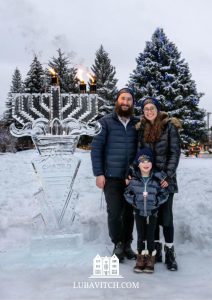
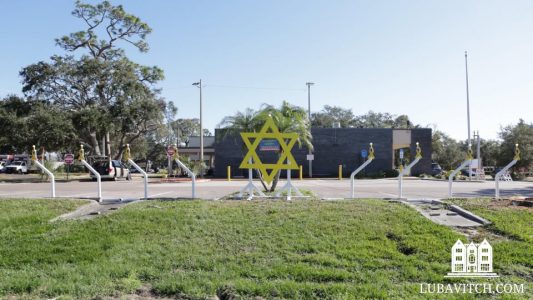

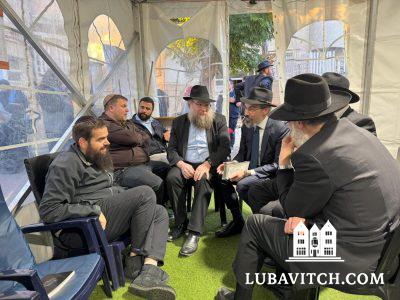

Be the first to write a comment.